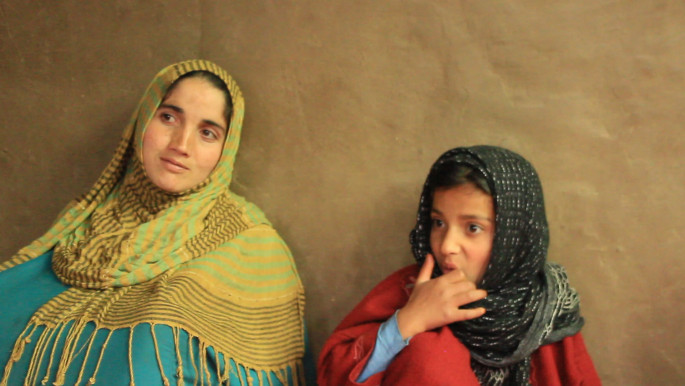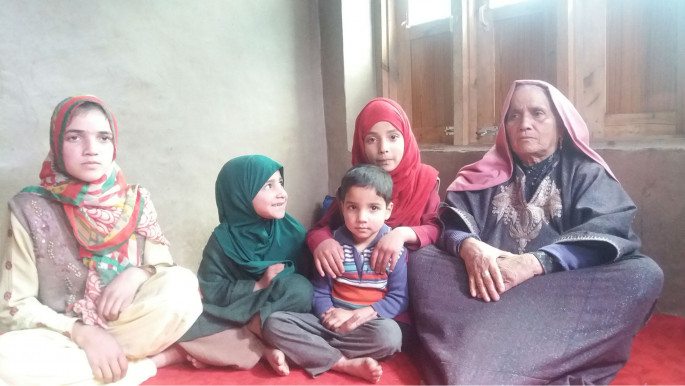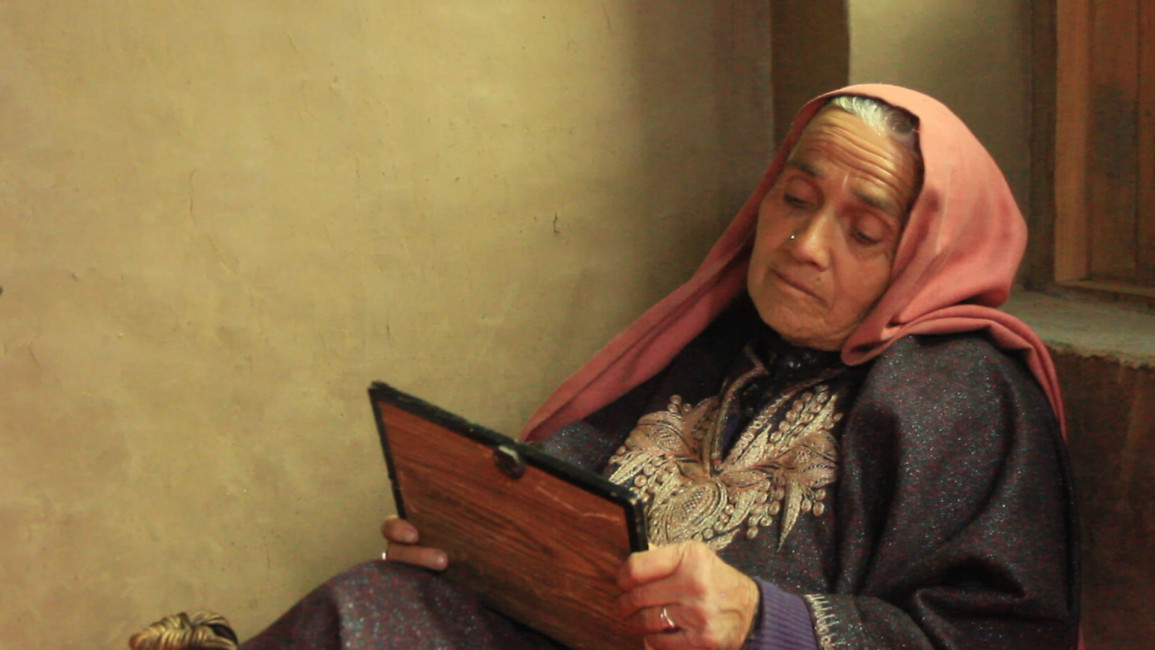
Kashmir: Where guns empty mothers' laps
Since the armed insurgency that erupted against Indian rule in the late 1980s, the region has been active, in death and destruction, with the majority of the population overwhelmingly supporting Kashmiri rebel fighters' cause.
India has deployed tens of thousands of armed forces who have been engaged in pulverising all kinds of dissent through remorseless waves of crackdown.
Despite the decades-long military onslaught to put the rebellion down, the youth in Kashmir remain obstinate at their ideas. The recruitment of youth in rebel ranks remain limited after 2002 but not completely stopped.
Ever since the student-turned-rebel commander Burhan Wani was killed in July 2016, the armed insurgency flared up again. Hordes of youth started joining armed rebellion. In April alone, around 30 educated youth have joined.
In the ongoing blood-letting that started decades ago, more than 70,000 people have been killed in Kashmir. The cycle of deadly violence has engulfed scores of young lives and left behind the old aged parents alone to struggle, without any carers.
The simmering conflict has had a seemingly catastrophic effect on mothers. They have dealt with adversity. It has become routine for them to receive the dead bodies of their loved ones.
Their heart-wrenching stories of pain, suffering and hardship can bring tears to anyone's eyes. Here is the story of ordeal of one such mother.
All photos by Aamir Ali Bhat.
Nabza Begum, 82
In Sondbarie village of South Kashmir, 82-year-old Nabza is living a desolate life. She has witnessed the death and destruction of her own family during the last three decades of armed conflict.
 |
Three of her sons joined insurgent groups at different times and all them were killed by Indian armed forces, while her youngest son was killed for being a brother of the armed rebels.
As I entered her house, Nabza greeted me with open arms. She looked visibly wounded from inside. Her lips were compressed, while her eyes seemed feverish. She spoke reluctantly with restlessness in her movements. Her eyes reflected her pain, suffering and melancholy.
Nabza who is fighting infirmity and widowhood, in her lachrymose voice narrates her agony. During the last three decades she has received the dead bodies of her four sons one by one. Her husband, Lassa Khan, who was her last hope, breathed his last at his home a few years ago.
 |
On his debilitated body, Lassa shouldered coffins of his four sons and two nephews.
"In other parts of the world, sons usually take care of their parents and when they die they shoulder their coffins. But in Kashmir it is different. None of our sons were left to shoulder the coffin of my husband," said Nabza.
Nabza is now living with her youngest daughter and son-in-law, along with three orphaned grandchildren of one of her rebel sons.
 |
Pointing her finger towards a man who was leaning against the door, Nabza introduces him as her son-in-law Manzoor Ahmad, a labourer by profession and lone breadwinner of this family. The silence prevailed in the room when melancholic Nabza in her wistful voice recalled the fateful incidents of her life.
"My sons sacrificed their life for the right cause, but how I wish I too was killed along with them," said Nabza. "Only my age stops me from joining the armed rebellion. But I have strong hope that we will achieve independence one day."
Picking up a photograph from the bunch lying on the floor Nabza introduced the man as her elder son Mukhter Ahmad, who was then 32-years-old. Mukhtar joined the armed rebellion during the peak of guerrilla warfare in 1990s but was killed by Indian armed forces in 1996.
 |
Nabza's youngest son Mohammad Abass, then 13-years-old, was killed by armed forces for being the brother of rebels.
"Abass was a teenager. He didn't even have a moustache when he was picked up by forces in 1999 and on November 25, 1999, we received bullet riddled body of my youngest son," recalls Nabza, with tears rolling down her face.
Wiping off her tears with her headscarf, Nabza said when their sons joined insurgent groups, Indian armed forces often visited their house and tortured her husband mercilessly. She always found them loud-mouthed and uncouth.
After a long pause, Nabza, recollects that armed forces had burnt down their two houses, two cowsheds and a shop that was sole source of income for their family.
The frequent "harassment" by armed soldiers had forced Lassa to leave the village.
"After our house was razed to ground, we instantly left the village to escape habitual harassment by soldiers, and took refuge at Srinagar," said Nabza. Without losing the thread of her story Nabza continued that after more than a year, they returned to their village.
 |
Nabza's third son, Ajaz Ahmad, was killed on October 6, 2002. "Ajaz had come to his home after a long time. He was not aware about the army camp that existed merely 20 yards away from our house," recalls Nabza. "After his long gun fight with armed forces, two bullets struck him in the chest."
Armed forces did not remove their camp until they killed Nabza's fourth son Ghulam Hassan. Hassan was married and is survived by his wife, two daughters and a son.
Hassan had joined the armed rebellion in the early 1990s and survived as an armed rebel for long time. He was later detained and "mercilessly" tortured inside an Indian army camp. After his release he got married.
"In 2003 Hassan was taken to an unknown place by armed forces. He was brutally tortured and subsequently hospitalised for almost three months," dispirited Nabza said.
"From hospital we brought him home. He remained bedridden for very long time. When he was limping back towards wellness at home, the Indian armed forces barged into our house and shot him dead."
After the death of Hassan, Nabza's second house along with the cowshed was razed to ground by forces.
Gesturing towards a nearby mountain Nabza said she still remembers the day when Indian forces dragged her from that mountain and she was bleeding profusely. Nabza is now suffering from kidney ailments.
Revealing the persona of her husband, Nabza said Lassa was very pious and a staunch supporter of the freedom struggle. He was an honourable man, who served all his life in truth and fidelity. He did not even cast a vote throughout his life.
"Once government employees came to our house with voter slips, he cudgelled them and shred the voter slips into pieces," said Nabza.
Sitting before Nabza, mother of Manzoor Ahmad, prays for Lassa's soul, "May Allah grant him a place in Jannah (heaven). Lassa sahab was kind and generous.
"Once he came to me with photographs of his martyred sons. Then in a very polite manner, he asked for my son's hand in marriage for his daughter. I was touched by his simplicity, so I couldn't say no," she continued in a breathless voice.
Even at present, the family says, the army harasses Manzoor. "They often beat me and ask me as to why I have married the sister of armed rebels," said Manzoor.
Aamir Ali Bhat is a Kashmir-based freelance journalist who reports on human rights abuses, culture and the environment.





 Follow the Middle East's top stories in English at The New Arab on Google News
Follow the Middle East's top stories in English at The New Arab on Google News


